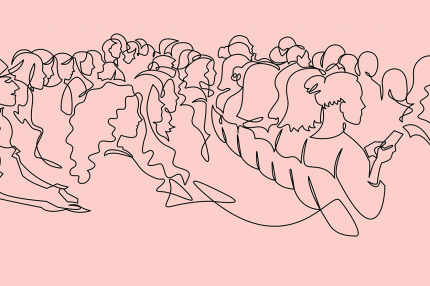Working life
What will your job be like in 15 years?
According to researcher Juha Kaskinen, in future employees will have to update their skills and competences more often whatever sector they are in. Photo: Vesa-Matti Väärä.
Futurologist Juha Kaskinen expects that in future knowledge work will become part of all jobs. In service sector professions, awareness of foreign cultures will become increasingly important.
The World Economic Forum, a grouping of movers and shakers in the business world, politicians and researchers, has forecasted that when today’s children grow up, 65 per cent of them will work in professions that do not yet exist.
Juha Kaskinen, Director of the Finland Futures Research Centre at the University of Turku, believes this diagnosis goes in the right direction, assuming that unexpected events like wars, pandemics or natural disasters do not upset developments.
“I wouldn’t talk in terms of job titles, however, rather changing patterns in work as a whole. Even if your job title is the same, the content of the work could be very different than it is now”, he stresses.
The researcher believes that in future data will become ever more important in all types of jobs. People will have to be able to collect, search for, analyse and transmit data.
“In a salesperson’s job, for example, knowledge of the entire life cycle of a product will be important. Customers are more interested in the origin of products, the materials used in them, the ways they were produced and who made a product. The salesperson will have to be able to answer those questions”, he explains.
In future a salesperson’s job title may not necessarily be salesperson, they might say they work as a life cycle information agent, for example.
Indeed it is sales work that is likely to change drastically in the next 15–20 years. Kaskinen forecasts that the number of traditional checkout clerks will decrease. Online retailers and increased self-service will take care of that.
“History has shown that whenever it has been possible to automate some job, then up to now that has happened. But I believe that traditional salespersons’ roles will continue in the luxury consumption sector. A person buying something exquisite and expensive may be prepared to pay to interact with a real live person.”
Customer service from your sofa at home
Digitalisation and the increased importance of knowledge work may make distance work a reality for more people.
For example, hotel reception clerks could check guests in from their home office. Guests would interact with a hologram in the hotel reception.
“This would mean that the customer could be on the other side of the world”, Kaskinen points out.
Indeed the researcher believes that in service sectors in particular awareness of foreign cultures and social skills will become increasingly important. Immigration means that the customer base is becoming more multicultural, also in Finland.
“Language recognition programs are improving and interaction is getting easier. But although you may no longer need to be able speak the other language, you will still need to understand customs and thinking in other cultures”, he adds.
Distance work could also create entirely new professions. The example the researcher gives is a distance chef, who could initiate customers into culinary secrets via video link.
And how can you try to prepare for the changes in store in future?
“Life-long learning is becoming ever more important. In future it will be necessary to upgrade your skills and competences in every single job even more so than today. You should also be mentally prepared for the possibility that the content of work will change radically”, Kaskinen says.





